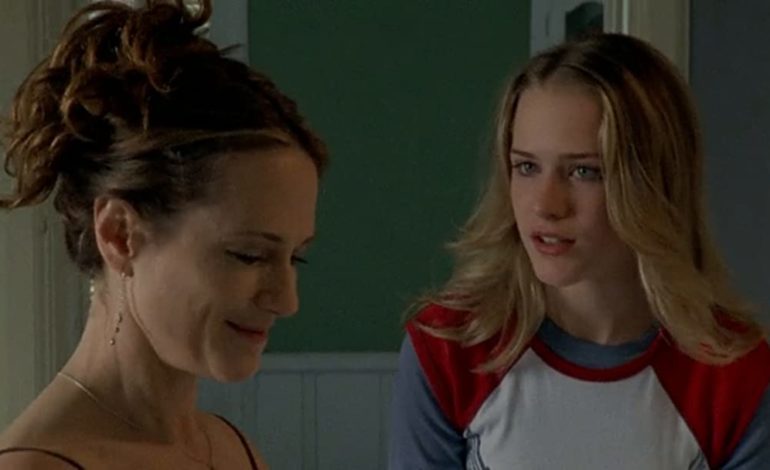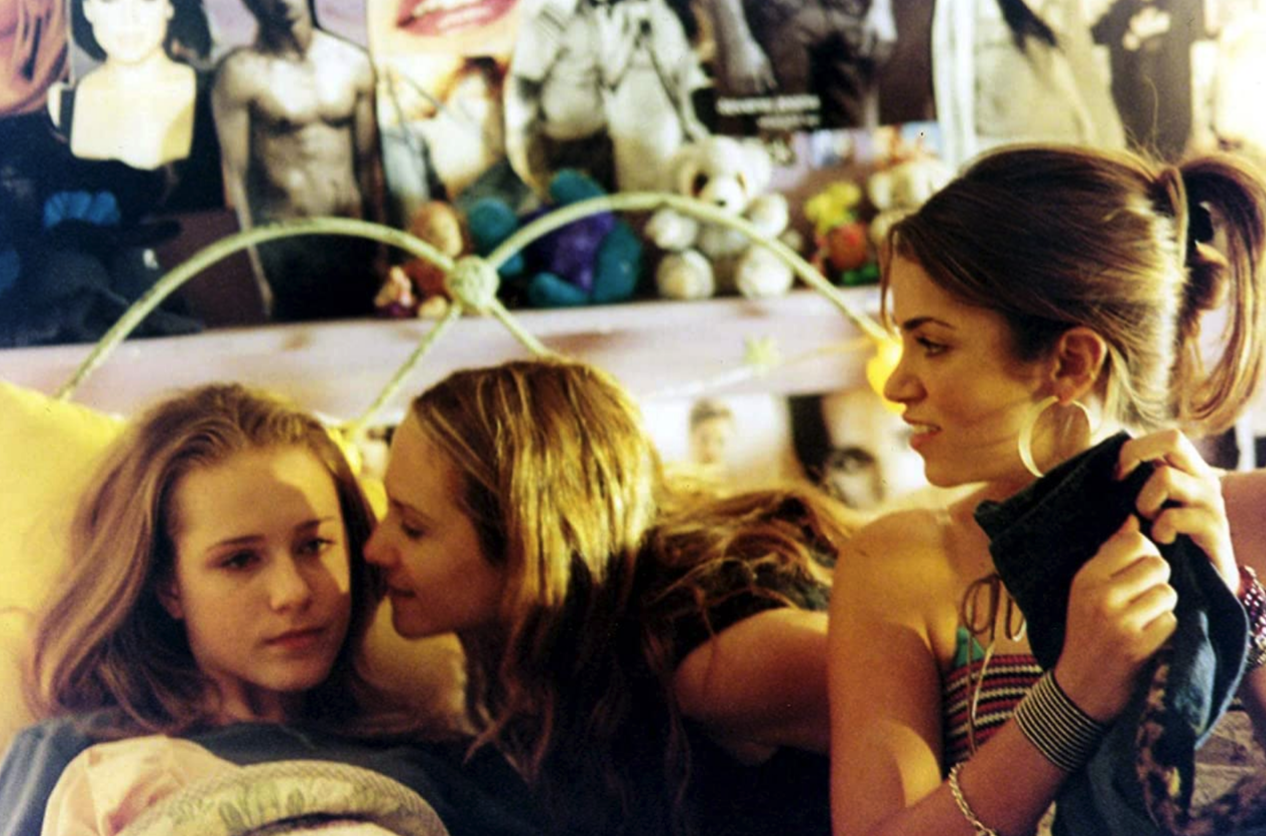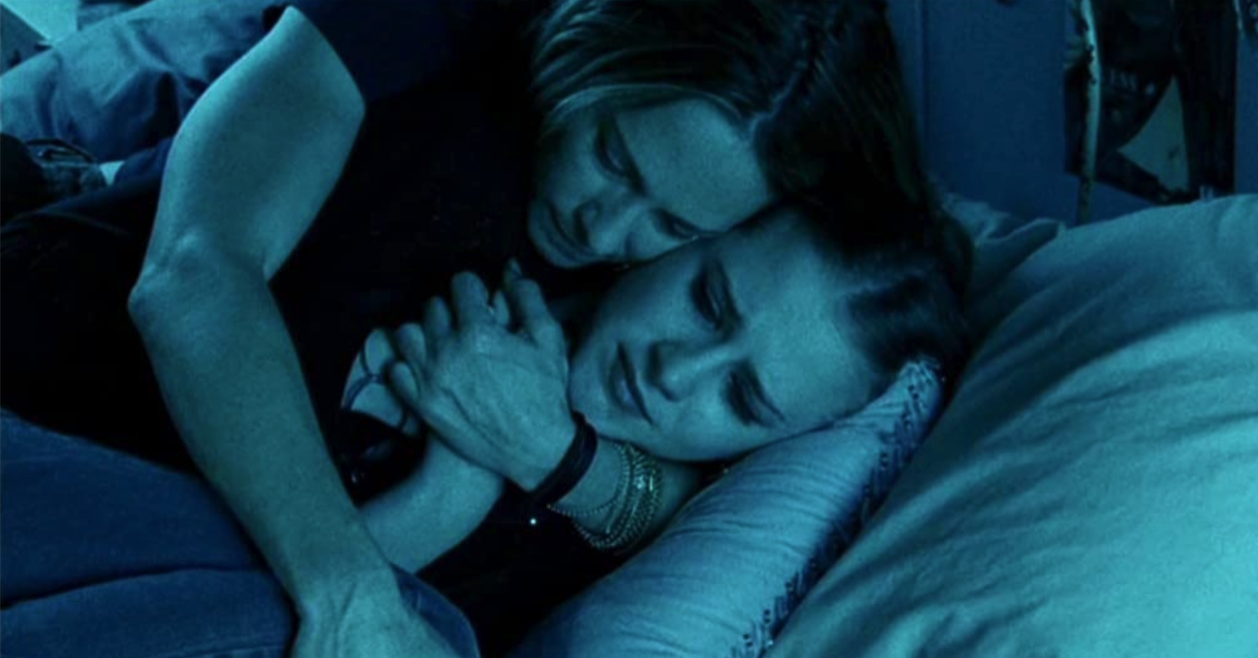

This month, we get to celebrate mothers (and single parents/guardians) of all kinds, acknowledging the effort and responsibilities they take on for others. At the end of the day, regardless of the legal responsibility to keep a child alive, being a parent is a choice. There is no way to truly prepare for parenthood and, just like children, parents have to navigate their own growth as they too are just as flawed. As children get older and they become more aware of these flaws, the relationship between them and their parent(s) slowly begins to shift. For mothers and daughters, this era triggers some contention between them once the daughter begins to come into her own identity as she is introduced to the experiences of womanhood. While many films capture the frustration of conflicting wants and goals that wedge between a mother and her daughter, not many truly capture the complexity of the coming of age between the two. Catherine Hardwicke’s film Thirteen (2003) provides a double-edged perspective from both the daughter and her mother as they both try to navigate such a pivotal time in both of their lives.
Thirteen follows thirteen-year-old Tracy (Evan Rachel Wood) as she begins to explore her own identity entering young adulthood. Entering the seventh grade, her main priority is to fit in with the popular girls and to get close to her middle school’s it-girl, Evie (Nikki Reed). As the film tells a coming of age story of a young girl, it also highlights a coming of age narrative of her single mother, Melanie, as she struggles to navigate these major and sometimes shocking changes in her daughter’s life.
Tracy seeks her own autonomy and acceptance from others by finding toxic companionship in her new friend, Evie. She struggles in finding comfort in this new identity as we watch her feel often compromised before making bad decisions to impress others. Parallel to Tracy’s narrative is that of her mother’s, as she too struggles in her own identity as a parent, not knowing how to handle her own discomfort and confusion in the wake of her daughter’s rebellion. In between the two is Evie’s journey seeking a stable mother figure. Through her relationship with Tracy, she takes advantage of Melanie’s kindness and maternal presence by charming her as she runs towards the motherly love that Tracy is trying to escape from. However, in her own relationship with Evie, Tracy is seeking that same unconditional love and acceptance despite the condescending and exploitative nature of their connection that ultimately ends in heartbreaking betrayal.


The unconditional love of a mother for her daughter is at the forefront of this story. For the majority of the first half of the film, we spend most of our time most intimately with Tracy. We empathize with her fairly deeply as we watch her be bullied on her first day of school by the popular girls. We identify with her as we watch her throw out her “cabbage patch”-esque socks and her stuffed animals, being brought back to our own memories of that (usually) painful catalyzing moment that created an urgency for us to fit in and be liked. Her goal to join the popular girls becomes our own and we want to watch her succeed.
Upon being accepted by Evie and her crew, we bear candid witness to Tracy’s rebellious evolution. We see her discomfort when she sees Evie and her friend shoplifting and we’re left both proud and disappointed when we see her sitting alone at the bus stop. But, as we watch Tracy compromise her own judgment when she steals a woman’s wallet, a worry starts to creep in as we become more and more concerned for her like a mother would.
As Tracy is developing into this new identity, we begin to pick up more of Melanie’s perspective, connecting to her through our mutual concern for her daughter. Our identification with Tracy is now starting to include our identification with Melanie. We appreciate the little efforts she makes to comply with Tracy’s new interests, chasing down the discount clothes van, upcycling her old jeans, and taking her and Evie shopping. We see her in private moments, talking with her sponsor about how to handle these changes in her daughter, frozen in her own insecurities as a parent, and her fear over Tracy’s wellbeing. This mutual identification the audience feels with both characters and their feelings of frustration and unease is only brought closer and closer together, building up the tension to the story’s climactic ending that results in Tracy having to succumb to her mother’s love and Melanie releasing the urge to give her daughter space, intervening when her daughter needs it the most.


Womanhood itself is a difficult experience to navigate making that relationship between mother and daughter all the more critical and special. Thirteen frames this relationship in such a way that can bring mothers and daughters to a more mutual understanding of each other, accepting and supporting one another with their imperfections as distinct individuals further strengthening their own understanding of true unconditional love.
